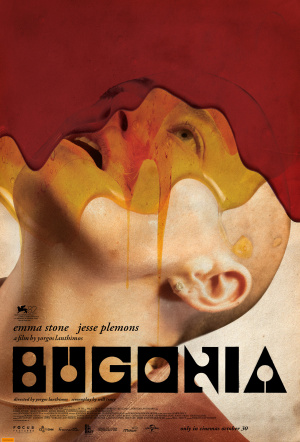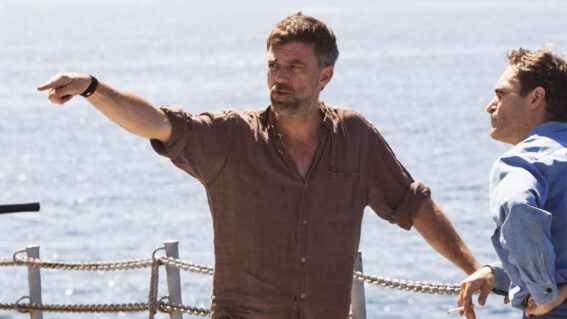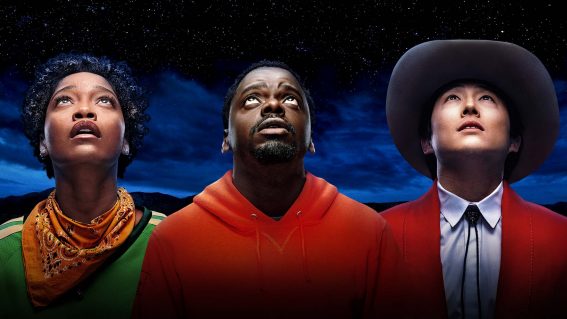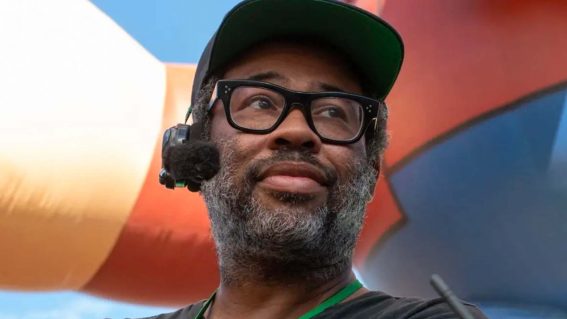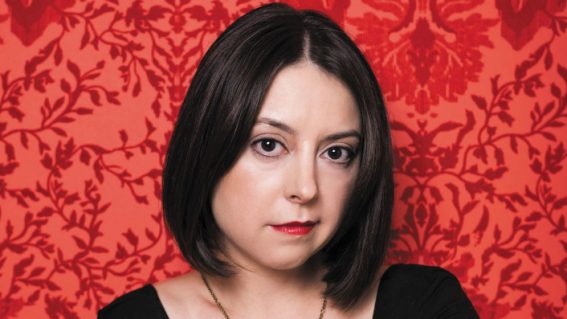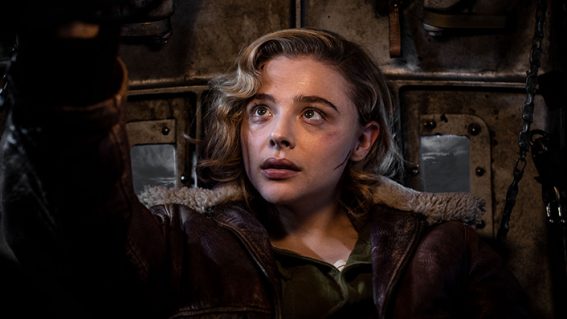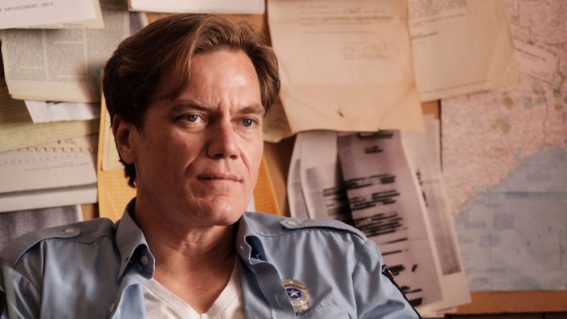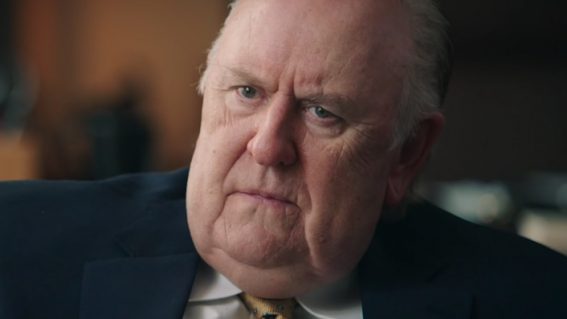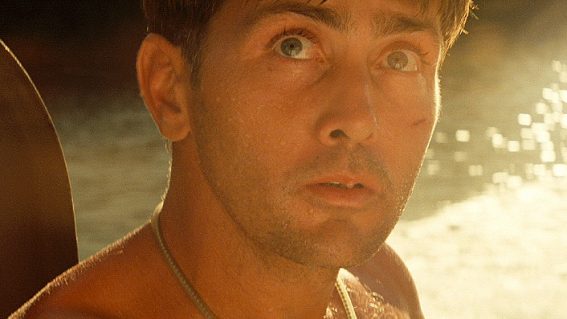“Yorgos isn’t going to die”: we chat with Yorgos Lanthimos, Emma Stone and Jesse Plemons
The stars and director of Bugonia talk to us about how their surreal black comedy uses alien abduction and class conflict to expose the absurd truths of our time.
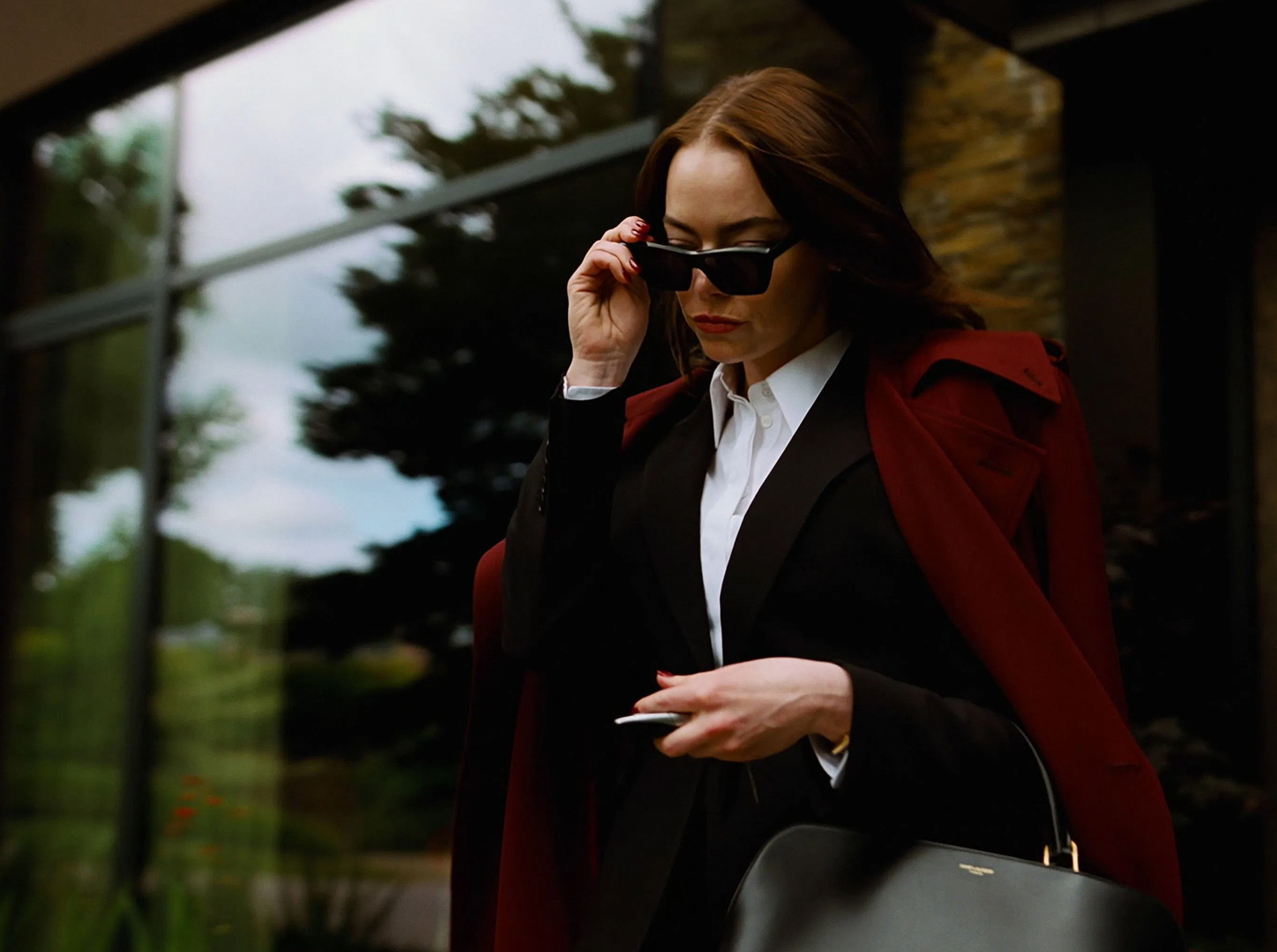
Newsflash: alien lifeforms known as “Andromedans” walk along us. They wear our skin, they poison our land, they kill our bees—all while Andromedan motherships hover above us, waiting to be contacted. If you’re unconvinced—or if you seem a touch too reluctant to admit that you’re one of the insidious shapeshifters hiding on Planet Earth—then maybe take an extended stay in the basement of Teddy Gatz (Jesse Plemons), a beekeeper and expert on the Andromedan crisis, as expert as one can be on alien conspiracy theories.
This is the crisis Michelle Fuller (Emma Stone) finds herself in. The pharmaceutical CEO is kidnapped and imprisoned by Teddy and his tagalong cousin Don (Aidan Delbis), and after Michelle’s head is shaved and her body is lathered in antihistamine cream, Teddy demands she contact her mothership to negotiate their permanent retreat from Earth. Welcome to Yorgos Lanthimos’ Bugonia, which in the Greek director’s typically provocative fashion, suggests that its intense conspiracy story maps easily onto our polarized world.
“I just remembered that line in Anchorman, ‘I like to imagine Jesus wearing a tuxedo,'” says Plemons. He has just, bravely, confirmed he believes in extra-terrestrial life: “I don’t know what version of aliens I necessarily believe in, but I just think the universe is too vast to think that there’s not some other life form. Maybe it’s because I played Teddy, but it’s kind of lonelier to think that there isn’t some other life force out there.”
The roundtable interview where Flicks joined Lathimos, Stone, and Plemons feels much less intense than Bugonia, the second collaboration between the trio after last year’s Kinds of Kindness (Stone has worked on every Lanthimos project since 2018’s The Favourite). It’s Saturday morning in the middle of the London Film Festival, and there’s a looseness to their conversation that sometimes devolves into three friends making each other laugh during an exhausting press tour. Lanthimos even offers a correction to the narrative surrounding the film since it premiered in Venice two months ago—specifically the buzz about a “conspiracy theorist thriller”.
“Well, to be honest, the conspiracy theory thing—we’ve overplayed it as well, but it’s a quick way to describe the film for people that haven’t seen it. It’s like a logline,” he clarifies. “But the core of the film is not about that. It’s about many more important issues, human nature and humanity itself. It’s a little bit limiting to just describe it as that. I should have done something about that earlier, I guess.”
Teddy’s theories transform him from a member of the underclass with a grudge against the rich to a self-appointed expert on a topic that, for all her intellect and comms expertise, Michelle cannot talk down or bargain with. Much of the film plays out in the farmhouse basement as Teddy cranks up the delusions and frustration when she won’t cooperate. Even though it feels impossible for him to get the confirmation he wants, that doesn’t mean he’s not capable of shocking violence.
“Okay, take the term conspiracy theorist out of it,” says Plemons. “There are two people with drastically opposed beliefs, as far away as you can get, and that’s the world right now. We’re split. I mean, it’s more complicated than that. But the thing that the film does that I think is interesting is, both Teddy and Michelle make statements that, in my opinion, are objectively true. I think we’re in a time right now where it’s very hard to hold two opposing truths at once. It all has to be this or that, and if you’re with this school of thought, I’m with you, or you can get the fuck out of here. That’s interesting to me, it presents the audience with that. What do you do with that?”
He was struck by Michelle and Teddy’s ability to pinpoint truth, despite their inflexible, unhealthy ideologies. “Michelle’s final monologue about this suicidal urge and tendency that humans have in their destruction of the planet, that feels true. I think all of Teddy’s comments about the social class he and Don are in, a lot of those statements are true. There are people that are out to use a large portion of society for their own gain, and a lot of people that are just sort of pawns.”
It may feel difficult to realise while watching the film, but the tragedy laced through Bugonia’s bleak, mean-spirited comedy is that neither Teddy or Michelle are past the point of saving. What can possibly save us?
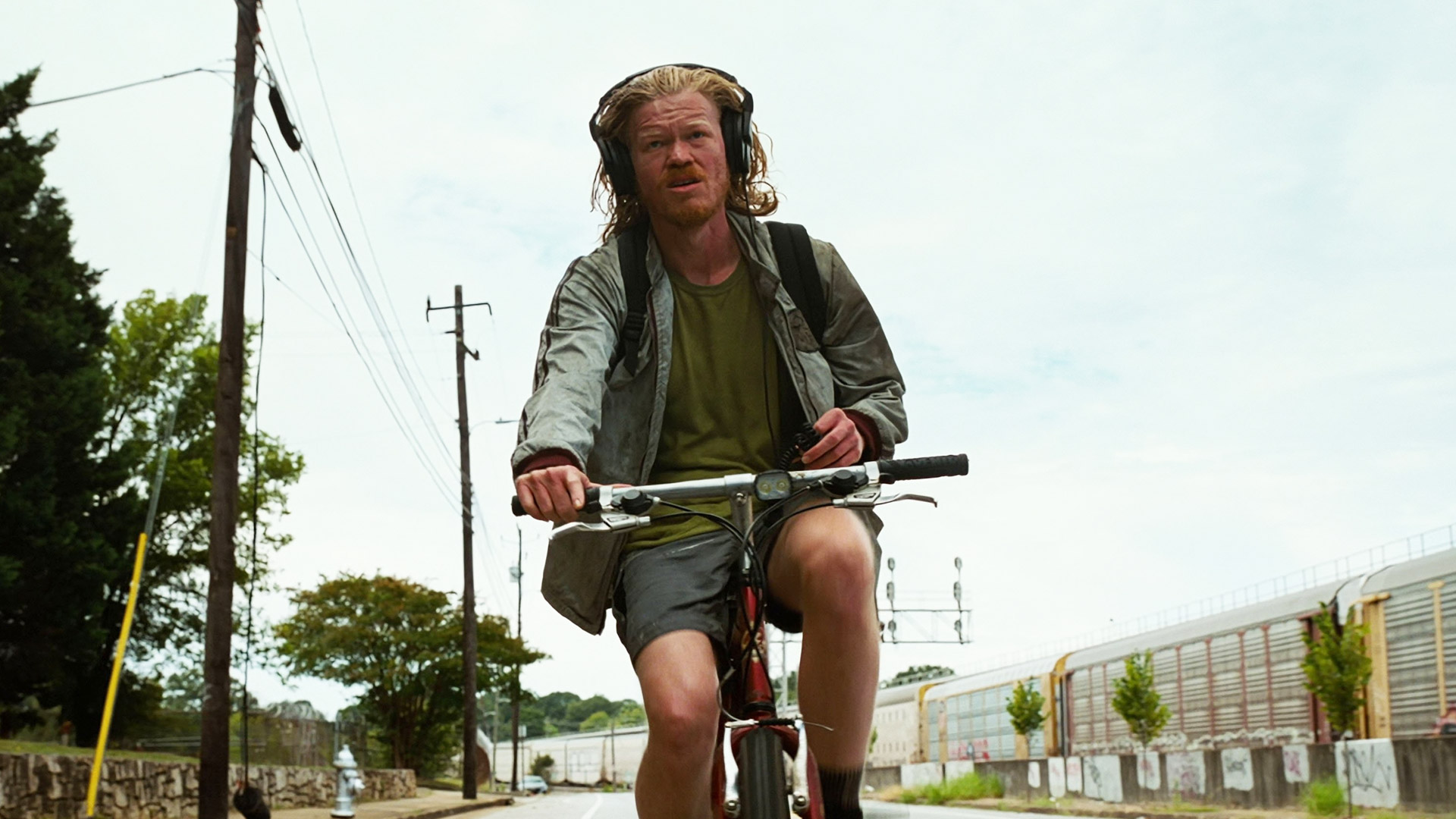
After interjecting with jokes for much of the interview, Stone gives a philosophical spin on the film’s doomerist take on how humanity butts heads to the point of braindeath. “I think connection is the greatest source of hope to me. But there is a sort of inevitability that the only guarantee we have, no matter how it happens, is that we are all going to die. So the hopelessness, that’s like asking, how do you maintain hope knowing that no matter what you do, you will die?”
“I think that’s a question that’s as old as time, or that’s inevitable. Looking at the planet the way it is, and the “failed species” thing—I’ll tell you what will, for sure, live on and regenerate,and it’s covered very beautifully in the film, is our planet. When the parasite of humanity is inevitably extinguished, our planet will flourish, and that’s hopeful.”
When Stone said we are all definitely going to die, Lanthimos muttered that he’d encountered some theories. Stone retorted by joking that her director is getting into biohacking. “Yorgos isn’t going to die,” muses Plemons.





